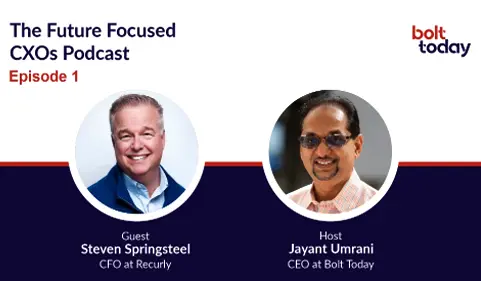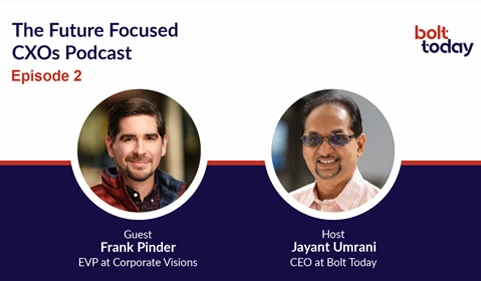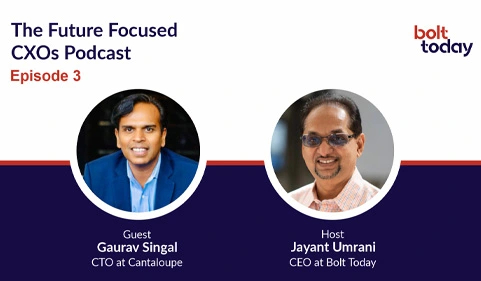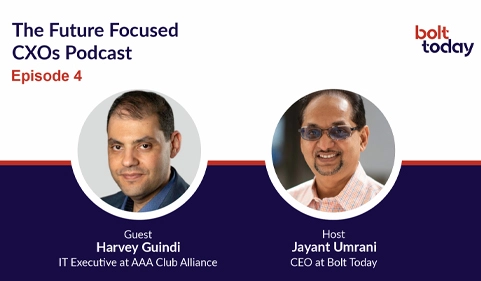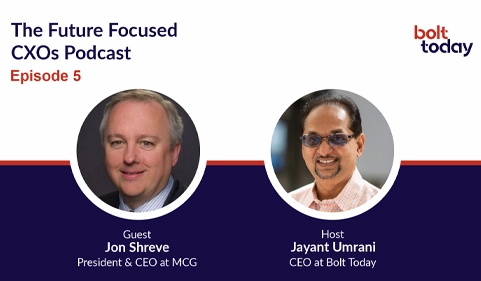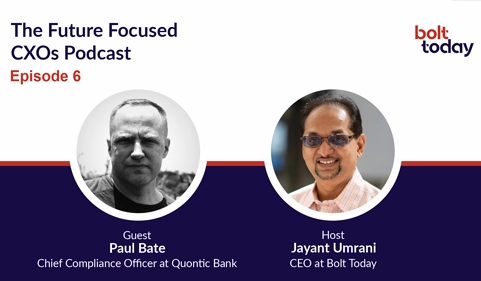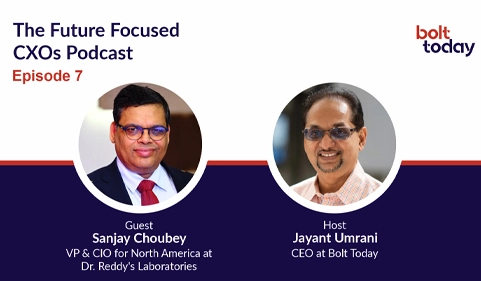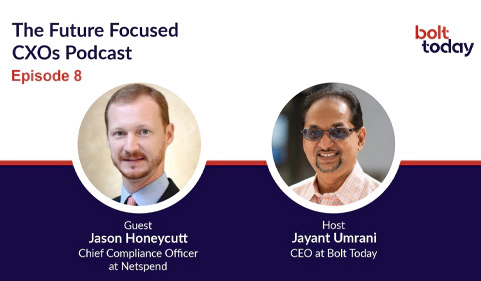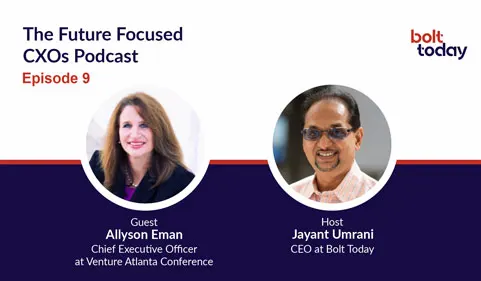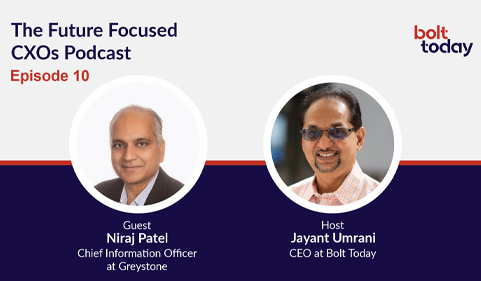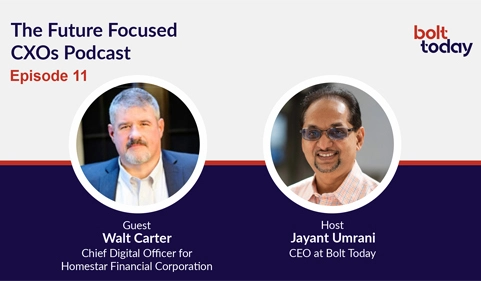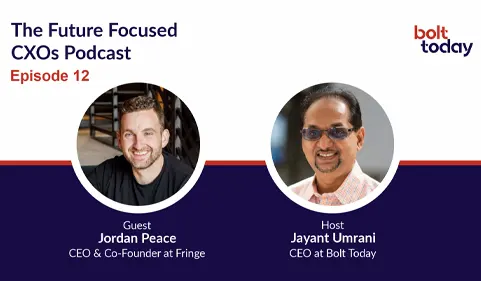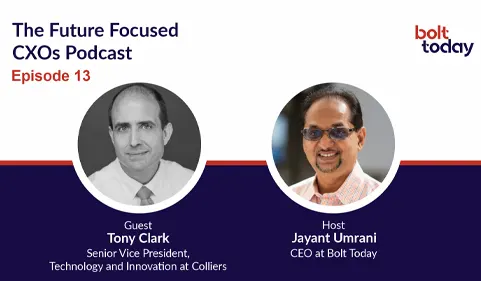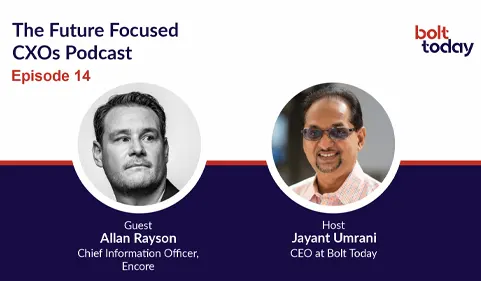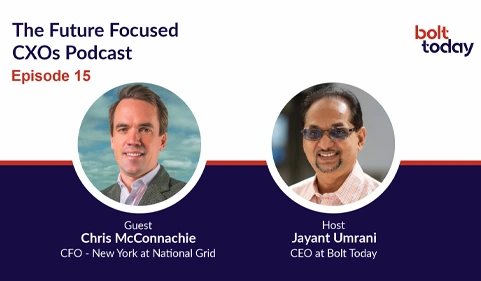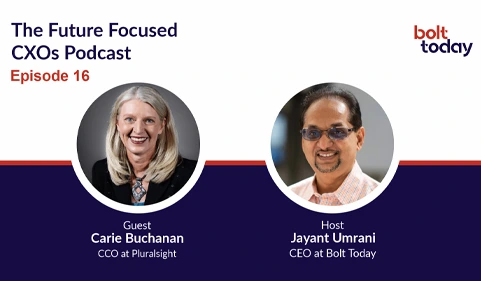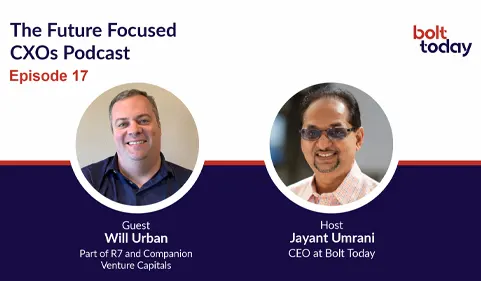Discover the winning strategies used by top CXOs to drive growth in their companies, even in the toughest of times! Join us on this must-listen podcast as we learn from the best in the business world.
Former Flexport Chief Revenue Officer, Will Urban, led the company's revenue growth from $600m to over $4.5b in 3 years through innovative strategies. With 25 years of experience in global trade, logistics, and supply chain, he now assists companies of all sizes to grow. Beginning his career at Expeditors in 1994, he rose to Regional Vice President, managing sales and operations across major locations. Will is now globally recognized as a trade, logistics, and supply chain expert, advising companies and serving as a venture partner at R7 and Companion Ventures.
Tune in to Engaging Conversations and Insights!
Topics Discussed
0:34 - Sure, Jay. I've had a lengthy career in supply chain management, starting with Expeditors International straight out of college. Over 25 years, I worked my way up to managing a large region for the company. After that, I consulted for a San Francisco-based firm called On Tap, where I crossed paths with Flexport's CEO, Ryan Petersen. Joining Flexport as Chief Revenue Officer, I witnessed remarkable growth, taking the company from $600 million to nearly $5 billion in just three years. Now, I'm involved with two venture capital firms, R7 and Companion Ventures, focusing on technology and early-stage SaaS companies, particularly those in the supply chain sector.
2:23 - Throughout my 25-year career in the supply chain, I wasn't deeply involved in venture capital until my time at Flexport. Working with a range of investors like SoftBank and Shopify sparked my interest. Upon leaving Flexport, I joined Companion and later connected with R7, where I saw untapped potential in the supply chain sector. This shift allows me more time for family and leverages my expertise to help companies grow.
4:43 - Over my 25-year career, I've learned the importance of work-life balance, especially in the last six to seven years. Initially, I was fully committed to my work at Expeditors, putting in long hours and moving locations as needed. However, I eventually realized the toll this took on my personal life and well-being. Upon leaving Expeditors, I took time off and traveled to Europe with my family, which allowed me to reconnect and prioritize family time. Transitioning to Flexport offered more flexibility in terms of location and schedule, but it wasn't until I left that I truly found a balance between work and family. Now, I prioritize my time and schedule around my family, allowing me to work more effectively and enjoyably. This shift has not only improved my personal life but also made me more successful in my professional endeavors.
11:10 - In assessing deals, I draw upon my practical business experience and background in scaling companies. Rather than assuming I know better, I offer insights gained from navigating challenges and learning from mistakes throughout my career. Key considerations include evaluating the founder's leadership abilities, their capacity to manage multiple responsibilities, and their receptiveness to feedback. Ultimately, I focus on identifying individuals with the potential to lead and scale a company effectively, recognizing that leadership is often the determining factor in a venture's success.
14:39 - In assessing deals, I focus on several key factors. Firstly, I scrutinize the leadership qualities of the founders, particularly their ability to manage finances responsibly and treat investor capital with care. Frugality, not stinginess, is crucial to instill confidence in stakeholders. Secondly, I examine the product-market fit and the company's go-to-market strategy. A compelling product is essential, but effective sales and articulation of value are equally vital for success. Additionally, I assess the founder's openness to feedback and their willingness to acknowledge and address their weaknesses. Soft skills, honed through mentorship and experience, often determine a venture's potential for growth and success. Ultimately, successful investments require a balance of quantitative analysis and qualitative evaluation, guided by both financial metrics and interpersonal dynamics.
20:28 - Effective leadership encompasses several critical traits that are instrumental in guiding teams and organizations toward success. Firstly, a great leader prioritizes the well-being and success of their team over personal gain. This selfless approach fosters trust and loyalty among team members, empowering them to achieve their full potential. Secondly, adaptability and openness to change are essential qualities of a leader. Being receptive to feedback and willing to modify strategies or decisions demonstrates humility and a commitment to continual improvement. Thirdly, transparency is paramount in leadership. Open communication ensures that team members are informed and engaged, fostering a culture of trust and accountability within the organization. Lastly, accessibility is vital for leaders, even in large organizations. Maintaining an open-door policy and ensuring that team members feel heard and valued cultivates a supportive and inclusive work environment. Overall, effective leadership is characterized by a genuine concern for the success of others, a willingness to evolve and learn, transparent communication, and accessibility to team members at all levels of the organization.
24:33 - Advancing to executive levels in one's career often requires making sacrifices and demonstrating initiative and adaptability. Firstly, having a supportive partner or family is invaluable, as they can provide understanding and encouragement during demanding periods of career growth. Secondly, individuals should be proactive in seeking out new challenges and opportunities for professional development, even in less glamorous tasks that contribute to the organization's success. Taking initiative and making suggestions demonstrate commitment and leadership potential. Additionally, maintaining a balance between work and family life is crucial. Companies are increasingly recognizing the importance of flexibility in accommodating employees' family commitments, but individuals must also prioritize and organize their schedules effectively to manage both work and personal responsibilities. Lastly, seizing opportunities and making the most of them is essential. When given a chance, individuals should embrace it wholeheartedly, recognizing that success often results from seizing opportunities and making the most of them rather than waiting for them to come. Ultimately, individuals must be proactive, resilient, and assertive in pursuing their career goals while maintaining a healthy work-life balance.

